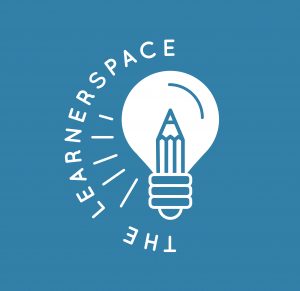Menu
Applications
- Applications by grade level
- Applications to reading and writing
- Applications by subject matter
- Professional Applications
Analysis of The British Schools’ Mission:
- Formation of Self-confident, Creative, Inquiring, Discerning, Fully Bilingual Students: The mission emphasizes the development of well-rounded individuals who are not only academically proficient but also possess critical thinking skills, creativity, and bilingual proficiency.
- Striving for Highest Standards: The school aims for excellence in academics, arts, and sports while recognizing individual differences and needs. This reflects a commitment to providing a supportive environment where students can excel according to their abilities.
- Instilling Human Values: The mission highlights the importance of moral, aesthetic, spiritual, and social values in personal growth and physical development, indicating a holistic approach to education that goes beyond academic achievement.
- Promoting Belonging and School Spirit: Encouraging a sense of belonging, pride, and affection for the school, its traditions, and institutional memory fosters a strong school community and student engagement.
- Incorporating Uruguayan and British Values: Integrating aspects of Uruguayan and British values and culture, such as justice, self-discipline, tolerance, and civility, prepares students for life in an intercultural setting and global community.
- Developing Empathy and Social Responsibility: The mission emphasizes the importance of empathy and awareness of social responsibility, encouraging students to use their talents for the greater good of the world.
Comparison with OECD Learning Compass 2030:
The OECD Learning Compass 2030 is a framework that outlines the knowledge, skills, attitudes, and values students need to thrive in the 21st century. It emphasizes three dimensions: cognitive, social and emotional, and behavioral. Let’s compare The British Schools’ mission with the OECD Learning Compass 2030:
- Cognitive Dimension: The British Schools’ mission aligns with the cognitive dimension by promoting critical thinking, creativity, and academic excellence.
- Social and Emotional Dimension: The emphasis on instilling human values, promoting belonging, and developing empathy and social responsibility aligns with the social and emotional dimension of the OECD Learning Compass 2030.
- Behavioral Dimension: The focus on fostering a sense of belonging, pride, and affection for the school, as well as preparing students for life in an intercultural setting, corresponds to the behavioral dimension, which includes skills related to communication, collaboration, and cultural competence.
Overall, The British Schools’ mission demonstrates a commitment to holistic education that encompasses cognitive, social and emotional, and behavioral dimensions, aligning well with the goals of the OECD Learning Compass 2030.
Cognitive Dimension:
- Critical Thinking and Inquiry: The emphasis on forming inquiring and discerning students aligns with the cognitive dimension of the OECD Learning Compass 2030, which stresses the importance of critical thinking skills. The mission’s focus on nurturing students who can analyze complex issues and find innovative solutions corresponds directly to the OECD’s goal of developing learners who can think critically and solve problems effectively.
- Academic Excellence: The commitment to striving for the highest standards and providing an educational environment conducive to achieving excellence corresponds to the OECD’s emphasis on academic proficiency. Academic excellence, as highlighted in the mission, is a fundamental aspect of the cognitive dimension outlined in the OECD Learning Compass, ensuring that students acquire the knowledge and skills needed for success in various fields.
Social and Emotional Dimension:
- Human Values and Personal Growth: The mission’s emphasis on instilling moral, aesthetic, spiritual, and social values in personal growth mirrors the social and emotional dimension of the OECD Learning Compass. This dimension underscores the significance of values, ethics, and emotional intelligence in navigating diverse social contexts, forming meaningful relationships, and promoting overall well-being.
- Sense of Belonging and School Spirit: Promoting a sense of belonging, pride, and affection for the school aligns with the OECD’s focus on creating supportive learning environments. The OECD Learning Compass emphasizes the importance of fostering a positive school climate where students feel valued, respected, and connected to their peers and school community, thereby contributing to their social and emotional development.
Behavioral Dimension:
- Cultural Competence and Intercultural Understanding: The incorporation of Uruguayan and British values and culture prepares students for life in an intercultural setting within a global community, which is a key aspect of the behavioral dimension in the OECD Learning Compass. This dimension emphasizes the development of cultural competence, empathy, and respect for diversity, enabling students to thrive in a multicultural world.
- Social Responsibility and Citizenship: The mission’s focus on developing empathy and awareness of social responsibility resonates with the OECD’s emphasis on fostering active citizenship and social responsibility. The behavioral dimension of the OECD Learning Compass highlights the importance of ethical decision-making, civic engagement, and contributing positively to society, aligning closely with the mission’s goal of nurturing students who are socially responsible and engaged members of their communities.
Overall Alignment:
The British Schools’ mission closely aligns with the objectives outlined in the OECD Learning Compass 2030 across all dimensions. By prioritizing critical thinking, human values, cultural competence, and social responsibility, the school’s mission reflects a comprehensive approach to education that is in line with the goals of the OECD Learning Compass 2030, aiming to prepare students for success in the 21st century.







